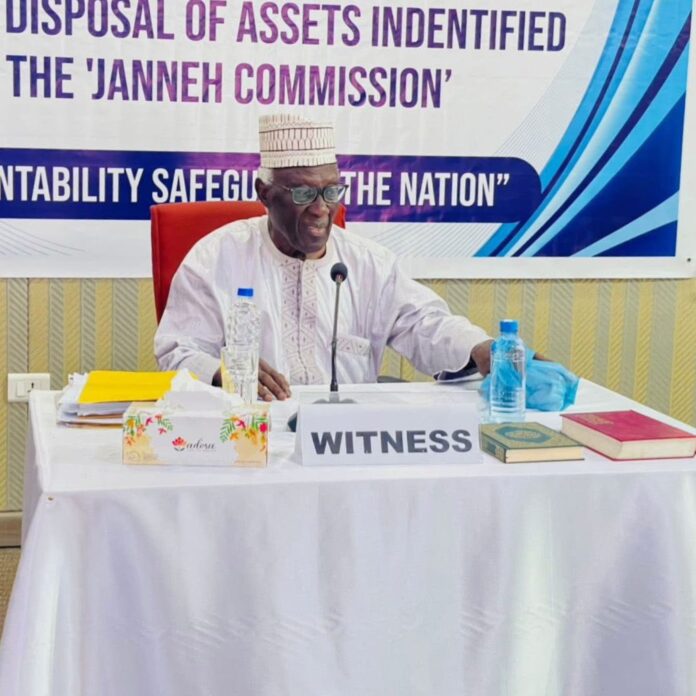Written By: Mama A. Touray
The former Chairperson of the Janneh Commission, Sourahata Babucarr Semega Janneh, has testified before the National Assembly Select Committee on the sale and disposal of assets identified by the Janneh Commission. His testimony focused on the mandate and appointment of commissioners and other staff of the commission.
It may be recalled that the Janneh Commission was established shortly after the election of President Adama Barrow, the third president of The Gambia, to investigate the financial dealings of public enterprises and the former president.
Testifying on how he came into contact with the commission, Chairperson Janneh narrated that the former Attorney General, Abubacarr Ba Tambadou, was a close friend of his and, as far as he could recall, it was Ba who initially spoke to him about taking up the chairperson position.
He informed the committee: “We had several meetings with the Attorney General, and these meetings were held in his office. I recall meetings in which the lead counsel and the secretary were in attendance. These were just preliminary meetings and the most important thing.”
On how they operated, he stated that the commission was established under the Commission of Inquiry Act of 1903, clarifying that the Janneh Commission worked under this Act, whereas “the TRRC was established by an actual Act of Parliament setting out what the government and parliament wanted.”
He further explained: “We had to depend on our mandate — that is, Section 202 of the Constitution, the Commission of Inquiry Act of 1903, and the Terms of Reference. So we had to sit — the three commissioners, lead counsel, secretary, and the Solicitor General.”
Janneh testified that during their meetings, it was made clear to them that they would have no independent budget. “It was made clear to us that we would have no budget of our own, we were to spend no money, and we had to completely depend on the government for everything,” he said.
While testifying on the difference between his role and that of the other commissioners, Janneh said: “The chairperson has no special role except that he chairs the commission. When you have a chairperson, the chairman naturally has the casting vote — even though that’s not in this document. There was no special role mentioned in the Terms of Reference. We all had the same powers.”
At this point, Counsel Dibba gave the witness three letters — one addressed to him (as chairperson) and the other two to Commissioners Abiosseh George and Bai Mass Saine. In the letters addressed to the two commissioners, their Terms of Reference were attached, while the chairperson’s letter instructed him to familiarise himself with the mandate of the commission.
Reacting to the letters, Janneh maintained: “If you talk about a particular TOR — no, I have not been served with a TOR,” he said.
Still testifying on the commission’s mandate and Terms of Reference, the witness referred to Section 200 of the 1997 Constitution in defence of the commission’s establishment. Counsel Dibba pointed out that this particular section refers to the president’s powers in establishing a commission of inquiry.
Maintaining his position, Janneh responded: “Everything in the Constitution prevails — even against what the President of the Republic believes, thinks, or writes, including the TOR.”
Janneh informed the committee that the commission had over 50 personnel and defended the number: “We had to gather evidence not only on Jammeh but also on his close associates and family members — that is why we needed quite a number of investigators. We never contacted the investigators ourselves; they were contacted by the Ministry of Justice, and it was the Ministry that prepared the budget. We did not have any budget.”
On the payment of these personnel, he stated: “I never signed anything to pay anyone. We never had a budget. Right from the beginning, there was a draft from the Ministry of Justice. I can confirm that many of them were from the judiciary, and they helped a lot — but how they were paid, I don’t know.”
Janneh also testified that the role of the secretary at the time was to serve as the custodian of documents coming from government and other institutions. “He was the court clerk as well, administered oaths for witnesses, and was assigned to sell,” he said.




